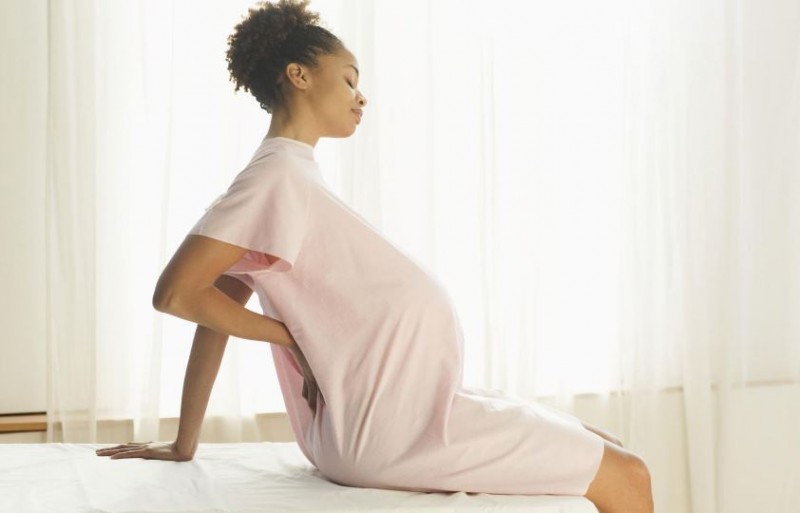
Becoming a mother is a cherished experience, often considered a dream for many women. However, the decision of when to conceive varies among individuals, influenced by a myriad of factors. While traditionally, getting married in one's early twenties and immediately planning for children was the norm, societal shifts have led many women to prioritize their careers first. Consequently, marriage, followed by dedicating time to new relationships, and then contemplating starting a family, has become more common.
Medical experts suggest that conceiving after the age of thirty may not be entirely safe for women due to the phenomenon known as Advanced Maternal Age (AMA). AMA refers to the period after a woman turns thirty-five when her body may face challenges in pregnancy and childbirth. While pregnancy is still possible after this age, the likelihood of complications increases as fertility declines and various health issues become more prevalent.
Impact on Fertility
As women age, their fertility naturally decreases, and the chances of conceiving diminish. The term "Advanced Maternal Age" underscores the fact that a woman's body is typically fully prepared and safe for conception and childbirth between the ages of fifteen and thirty. However, beyond this age, fertility gradually declines. Although it's not impossible for women over thirty-five to conceive, advancing age brings about increased complexities in fertility. The quality of eggs diminishes, making natural conception more challenging and risky. In such cases, doctors often recommend assisted reproductive technologies like IVF, IUI, embryo donation, or genetic screening to enhance the chances of conception.
Emotional and Physical Challenges
Pregnancy and childbirth bring significant emotional and physical changes to a woman's life. While younger women generally cope better with the demands of pregnancy and newborn care due to their higher energy levels and resilience, older mothers may find themselves more physically and emotionally strained. Advanced maternal age is often associated with increased risks of high blood pressure, diabetes, joint pain, and other health issues, which can complicate pregnancy and childbirth. Additionally, the risk of conditions such as hypertension, thyroid disorders, miscarriage, intrauterine growth restriction, preterm birth, or having a child with physical or mental disabilities also escalates with age.
Age Gap Between Children
Deciding to expand the family at an older age may pose challenges in maintaining an appropriate age gap between siblings. Planning pregnancies in quick succession becomes increasingly difficult due to the risks associated with each pregnancy. Consequently, older parents may find it challenging to ensure an optimal age gap between their children, as each subsequent pregnancy carries additional risks.
Genetic Risks
Advanced maternal age also raises concerns about genetic risks associated with pregnancy. Older women are more likely to experience abnormalities in egg cells, increasing the chances of chromosomal abnormalities in offspring, such as Down syndrome. Therefore, genetic counseling and prenatal screening become essential considerations for older mothers to assess and mitigate potential risks.
Personal Impact
The decision to become a mother at an older age not only affects a woman's physical health but also has profound implications for her personal life. Welcoming a child brings about numerous responsibilities and lifestyle changes that can significantly impact a woman's career, relationships, and overall well-being. Therefore, it's crucial for women to carefully consider these factors before making the decision to conceive at an advanced age.
Preparation for Pregnancy
Despite the complexities associated with conceiving at an older age, many women successfully navigate pregnancy and childbirth in their thirties and beyond. To ensure a smooth journey from conception to childbirth, here are some key considerations:
Regular Medical Check-ups: It's essential for women over thirty-five to consult with a healthcare provider before planning a pregnancy to assess their overall health and fertility. Any underlying medical conditions or concerns, such as irregular periods or recurrent miscarriages, should be addressed beforehand.
Folic Acid Supplementation: Adequate intake of folic acid is crucial for pregnant women as it supports the proper development of the baby's neural tube. Therefore, women planning a pregnancy should start taking folic acid supplements before conception to reduce the risk of neural tube defects.
Avoidance of Caffeine and Substance Use: Smoking and alcohol consumption should be avoided before and during pregnancy as they can have harmful effects on fetal development. Additionally, limiting caffeine intake is advisable as excessive caffeine consumption has been linked to pregnancy complications.
Stress Management: Maintaining emotional well-being is essential for a healthy pregnancy. Women should practice stress-reducing techniques such as mindfulness, meditation, or yoga to cope with the challenges of pregnancy and parenthood.
Balanced Diet: A nutritious diet rich in proteins, carbohydrates, fats, vitamins, and minerals is vital for both maternal and fetal health. Including plenty of fresh fruits and vegetables in the diet, and avoiding junk food can ensure optimal nutrition during pregnancy.
Financial Planning: Pregnancy and childbirth come with significant financial expenses. Therefore, it's essential for couples to assess their financial situation and plan accordingly before expanding their family.
In conclusion, while the decision to become a mother is deeply personal, it's crucial for women to consider the potential implications of advanced maternal age on their health, fertility, and personal life. By prioritizing their well-being and seeking appropriate medical guidance, women can navigate the journey of motherhood with confidence and ensure the best possible outcomes for themselves and their babies.
These Nine Health Benefits of Lychee Fruit Will Surprise You, Find Them
Is eating eggs beneficial or harmful during pregnancy? Know the answer to this question from experts